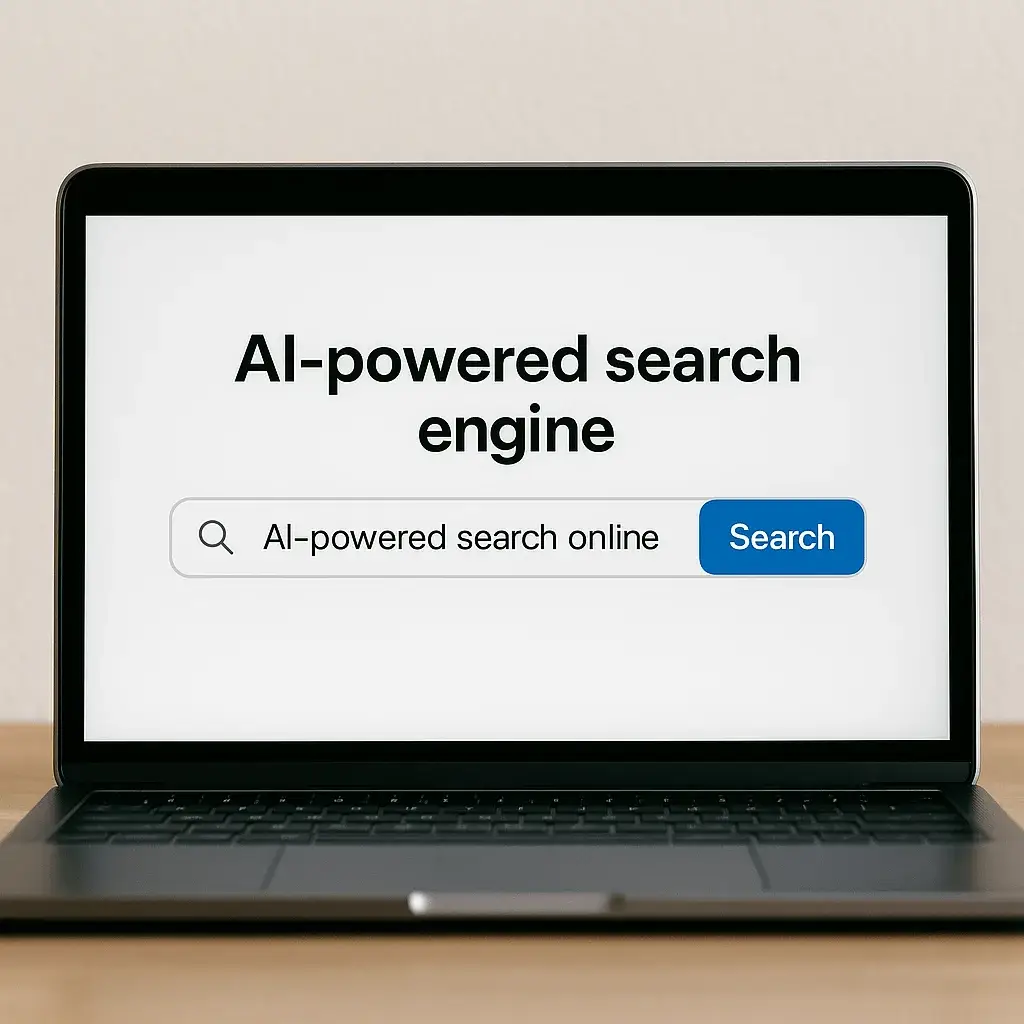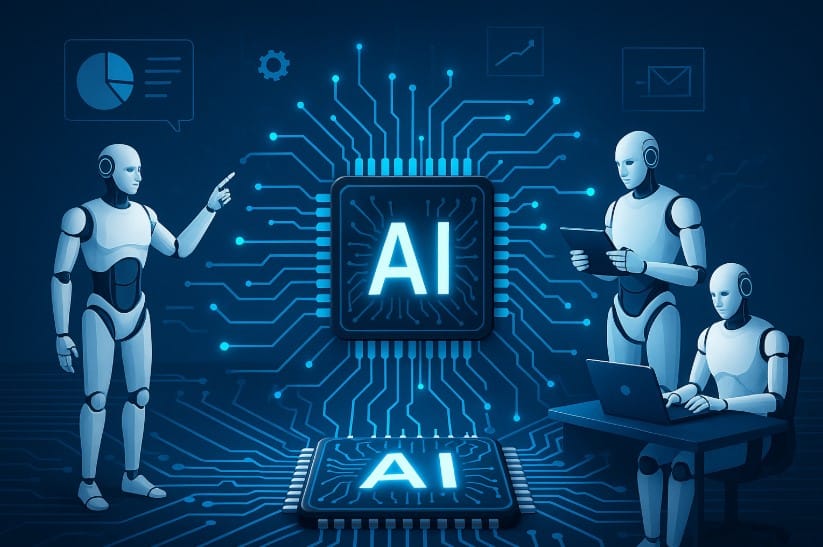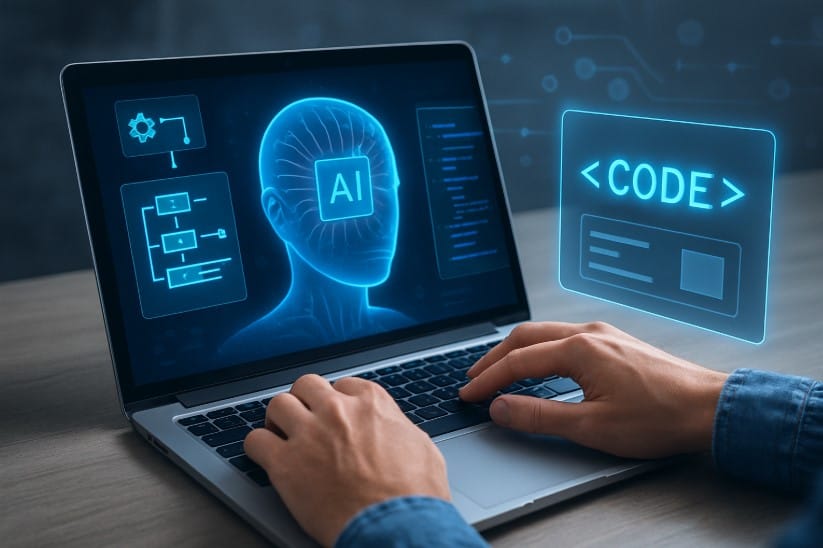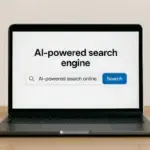Now Reading: The Rise of AI-Powered Search Engines: Can Google Survive Beyond 2025?
- 01
The Rise of AI-Powered Search Engines: Can Google Survive Beyond 2025?

The Rise of AI-Powered Search Engines: Can Google Survive Beyond 2025?
AI-powered search engines such as ChatGPT and Perplexity are changing how we find answers online. Discover how they compare to Google, and what the future of search really looks like.
How Did We Get Here: A Quick Look at Search Engines
Alright, let’s rewind for a sec.
There was a time not even that long ago, when the internet felt like the wild west. You’d type something into a search bar and hope for the best. Early search engines were pretty basic. You’d throw in some keywords, and they’d spit out pages that might match, if you were lucky. It was like asking someone for help and having them toss a giant stack of books at you and say, “It’s in there somewhere, you find it.”
Then came Google. Clean, fast, and way smarter than the rest. Google didn’t just match words, it figured out which pages were actually useful. It ranked sites based on things like links and how many people clicked them. Suddenly, search felt… better. We got so used to “Googling” things that it literally became a verb. Lost your password? Google it. Need a last-minute dinner recipe? Google’s got you. It became second nature.
But here’s the thing: the way we use the internet has changed. We don’t just want links anymore, we want answers. Clear ones. Fast ones. We don’t have time to open five tabs, skim through articles, dodge pop-ups, and scroll past a wall of ads just to find one fact.
And this is where AI-powered search comes in.
Instead of just showing you where the answers might be, tools like ChatGPT and Perplexity AI actually give you the answers right then and there. They’re built to understand what you’re really asking, not just the words you typed. It’s kind of like talking to someone who knows your vibe, gets your question, and responds in plain English (not robot-speak).
So, while Google’s been the king of search for years, it’s facing a new kind of challenger, one that doesn’t just show you the map but walks you straight to the treasure like AI-powered search does.
And let’s be honest… that sounds pretty nice, doesn’t it?
Meet the New Players: AI-Powered Search Engines
Okay, so if Google is the long-time champ of the search engine world, who are these new AI kids on the block?
Let’s start with ChatGPT. This app is powered by a massive language model that’s been trained on everything from Wikipedia articles to Reddit threads to help you find answers in a way that feels… human. Ask it anything like “What’s the best way to learn guitar?” to “Explain black holes like I’m five”, and it’ll do its best to give you a clear, friendly answer. No links. No fluff. Just straight talk.
Then there’s Perplexity AI, which is like ChatGPT’s super-curious cousin. It blends the conversational style of AI with real-time internet search. You ask a question, and it doesn’t just summarize, it shows you the sources it pulled from, so you can double-check or dig deeper. It’s like if Wikipedia, Google, and a helpful librarian had a baby. It’s fast, smart, and low on junk and nonsense.
What makes these AI-powered search engines different is how they feel. Instead of tossing you a pile of search results, they respond like someone who actually gets what you’re asking for. They’re less like a search engine and more like a brainy friend who’s already done the homework.
Here’s a quick example:
Let’s say you Google, “best way to sleep better.” You’ll get 10 links. Some are blogs. Some are trying to sell you a mattress. One might just be a recipe site with way too many ads. You click, scroll, click back… ugh.
Now ask ChatGPT or Perplexity the same thing. You’ll get a clear answer with tips like keeping a consistent bedtime, limiting screen time before bed, and maybe even trying magnesium (with a quick heads-up to check with your doctor). It’s calm, direct, and actually useful.
And the best part? No more falling down the click-hole rabbit trail.
AI-powered search is built to be helpful first, not just clickable. It’s a whole new vibe and people are starting to notice.
Why People Are Making the Switch
So why are more and more people ditching Google and heading straight to AI tools like ChatGPT and Perplexity?
Simple: these apps are just easier to use.
Let’s be real here, traditional search can feel like homework. You type a question, get a wall of links, and then… you’re on your own. You open tab after tab, scroll through paragraphs of fluff, dodge a few pop-ups, and hope the answer is hiding in there somewhere. It’s kind of like asking someone for directions and getting handed five maps and a “good luck.”
But with AI search? It’s more like texting a smart friend who just tells you what you need to know. No detours. No digging. Just a clear, direct response that actually makes sense.
People also love how personalized it feels. You can ask follow-up questions, go deeper on something, or even say, “Wait, explain it like I’m 12.” And boom it adjusts again and come up with a tailored response. That kind of back-and-forth just doesn’t happen with regular search engines.
One user told me they started using Perplexity for homework help and now use it for everything including recipes, travel tips, even writing emails. Another said ChatGPT helped them prep for a job interview better than anything they found through Google.
Bottom line? AI-powered search feels faster, smarter, and more human. And once people try it… they kinda don’t want to go back again.
Can Google Keep Up?
Alright, let’s talk about the big question: Can Google keep up with this AI-powered search revolution?
Now, before we start writing Google’s obituary, let’s remember that this is Google we’re talking about. They’ve been the internet’s go-to since dial-up days. They’ve got the tech, the talent, and a lot of data. So, no, they’re not just going to roll over and give up the throne.
In fact, Google’s already trying to evolve. They’ve launched something called SGE (Search Generative Experience), which is basically their version of AI-powered results. It’s supposed to give you more helpful, summarized answers right in the search results just like what ChatGPT and the rest do. And they’ve also been building out Gemini, their AI assistant, which is trying to blend AI smarts into your everyday tools like Gmail, Docs, and of course, Search.
But here’s the tricky part: Google makes money from ads. Lots of it. When you click through pages of links, those ads make them billions. So, if they suddenly switch to giving you instant, no-click answers… that’s a huge shift for their whole business model. It’s like asking a pizza place to survive without selling pizza.
AI-first tools like ChatGPT and Perplexity don’t have that problem. They weren’t built around ads but they were built around answers. That gives them the freedom to be more helpful, direct, and conversational from the start.
Plus, people are noticing. More folks are turning to AI for daily questions, quick learning, even content creation. And while Google’s still the default for most of us, that grip is loosening fast, especially with younger users who want speed, clarity, and a search that actually feels smart.
So, can Google keep up? Technically, yes. But the real challenge is deeper: can they reinvent how they deliver information without losing what made them the king of search in the first place?
The race is on, and it’s going to be wild to watch.
So, what does all this AI search talk actually mean for you?
In short: the way we find information online is changing fast. Instead of digging through a pile of links and ads, you now have the option to just ask and get an actual answer. It’s like search has grown up. It’s more conversational, more helpful, and way more in tune with how we think and ask questions.
Imagine having a super-smart assistant who’s always available, never tired, and totally cool with weird questions like, “How do I explain quantum physics to my dog?” Okay, maybe not that one, but close. That’s the direction we’re headed with AI-powered search.
And the best part? You don’t have to pick just one. You can still use Google for certain things (like local restaurants or shopping), but lean on AI tools when you want deep answers, fast facts, or help thinking through something. This is not about choosing sides; it’s about knowing which tool works best for the job at any given time.
If you’re curious, try this: the next time you have a random question or need help understanding something, type it into ChatGPT or Perplexity AI instead of Google. See how it feels. You might be surprised by how much more direct and exciting it is.
And hey, this shift isn’t just about tech alone, it’s about us. How we ask, learn, and interact with information is evolving rapidly. AI search tools are basically digital assistants that understand you, not just your keywords. This is really huge.
In the end, the future of search isn’t about who wins or loses, it’s about how we can all get better answers, faster, and with less stress. And honestly? That’s something we could all use more of.
Ready to explore the future of search?
Why not give AI-powered tools a try today? You can even ask a weird question. Test them out for school, work, or just random curiosity. You might just fall in love with how simple and smart search has become.
And if you’ve enjoyed this post, stick around. I’ve got more coming on how AI is shaking up the internet in the best ways.
Stay curious.















